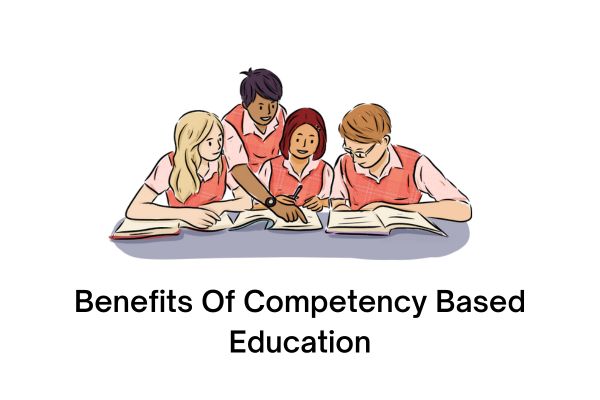What are the benefits of competency based education? In today’s rapidly changing world, traditional education systems are often criticized for failing to adequately prepare students for the challenges and opportunities they will face in the real world. As a result, an alternative approach known as competency-based education has gained traction. This educational model focuses on the specific knowledge, skills, and abilities that students need to succeed in their chosen field. In this article, we will explore the benefits of competency-based education and how it can revolutionize the way we learn and grow.
1. Customized Learning
One of the key advantages of competency-based education is its ability to provide customized learning experiences for students. Unlike traditional classrooms where the pace and content are predetermined, competency-based education allows students to progress at their own pace, based on their individual strengths and needs. This personalized approach ensures that students fully grasp the subject matter before moving on, leading to a deeper understanding and retention of knowledge.
2. Real-World Relevance
Competency-based education places a strong emphasis on practical application and real-world relevance. Rather than focusing solely on theoretical concepts, students are actively engaged in hands-on learning experiences that mirror the challenges they will face in their future careers. This practical approach not only enhances understanding but also equips students with the skills and competencies they need to succeed in the workforce.
3. Flexibility and Accessibility
Another advantage of competency-based education is its flexibility and accessibility. This educational model recognizes that students have different learning styles, commitments, and schedules. Competency-based programs are often designed to be flexible, allowing students to learn at their own pace and in their own time. Additionally, many competency-based programs offer online courses, making education accessible to individuals regardless of their location or personal circumstances.
4. Mastery-Based Progression
Traditional education systems often rely on a time-based progression, where students move from one grade level to the next based on a predetermined timeframe. Competency-based education, on the other hand, focuses on mastery-based progression. This means that students are required to demonstrate a deep understanding and mastery of a particular skill or concept before progressing to the next level. By emphasizing mastery rather than just completion, competency-based education ensures that students are truly prepared for the challenges they will face in their chosen field.
5. Student Empowerment
Competency-based education empowers students to take ownership of their learning journey. Students are actively involved in setting their learning goals, identifying their strengths and weaknesses, and monitoring their own progress. This level of autonomy fosters a sense of responsibility and self-motivation, ultimately leading to a greater level of engagement and achievement.
6. Lifelong Learning Skills
Competency-based education not only equips students with subject-specific knowledge and skills but also fosters the development of lifelong learning skills. In today’s rapidly evolving world, the ability to adapt, learn new things, and continually improve is crucial. Competency-based education instills a growth mindset, encouraging students to embrace challenges, seek feedback, and persist in the face of obstacles. These skills are not only valuable in academia but also in the professional realm.
7. Addressing Learning Gaps
One of the challenges of traditional education is that it often fails to address the individual learning gaps that students may have. Competency-based education is designed to identify and address these gaps more effectively. By focusing on specific competencies, educators can target areas where students may be struggling and provide the support and resources needed to bridge these gaps. This personalized approach ensures that all students have the opportunity to succeed.
8. Collaboration and Communication
Competency-based education places a strong emphasis on collaboration and communication skills. Students are encouraged to work in teams, engage in discussions, and present their ideas effectively. This not only enhances their ability to work well with others but also prepares them for the collaborative nature of the modern workplace. By practicing these skills throughout their educational journey, students develop the confidence and competence needed to thrive in a team-oriented environment.
9. Career Readiness
One of the primary goals of education is to prepare students for successful careers. Competency-based education excels in this area by providing students with the specific skills and knowledge required in their chosen field. By aligning learning outcomes with industry standards, competency-based programs ensure that graduates are well-equipped to meet the demands of the job market. This increased focus on career readiness enhances employability and opens up greater opportunities for students.
10. Continuous Improvement
Competency-based education is rooted in the philosophy of continuous improvement. Educators are constantly evaluating and refining their instructional methods to ensure that students receive the best possible learning experience. This commitment to ongoing improvement not only benefits students but also strengthens the educational institution as a whole. By embracing change and innovation, competency-based education is able to adapt to the evolving needs of students and the wider society.
In conclusion, competency-based education offers numerous benefits that can revolutionize the way we learn and grow. From customized learning experiences to career readiness and continuous improvement, this educational model provides a student-centered approach that prepares individuals for success in a rapidly changing world. By embracing competency-based education, we can unlock the full potential of students and create a more effective and relevant educational system.
